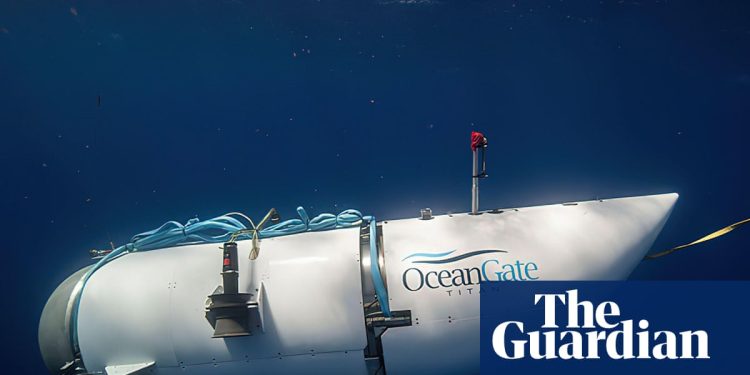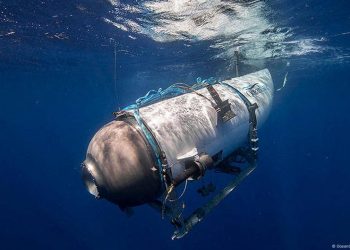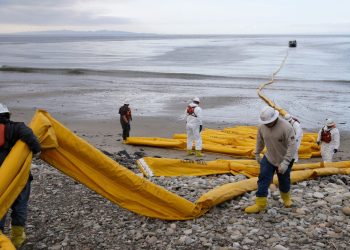The deadly implosion of a submersible heading toward the wreck of the Titanic was the result of faulty engineering, the National Transportation Safety Board (NTSB) announced Wednesday.
The NTSB’s final report on the voyage that killed five people in June 2023 says OceanGate, the private company that owns the Titan, failed to adequately test its experimental submersible before the voyage. The Washington state-based company, which suspended operations after the catastrophic implosion, was unaware of the submersible’s true durability, the report said.
The victims, including OceanGate CEO Stockton Rush, died instantly in the North Atlantic during the descent to the remains of the Titanic.
The implosion also killed French underwater explorer Paul-Henri Nargeolet, known as “Monsieur Titanic”; British adventurer Hamish Harding; and two members of a prominent Pakistani family, Shahzada Dawood and her son Suleman Dawood.
The Titan’s faulty engineering “resulted in the construction of a carbon fiber composite pressure vessel that contained multiple anomalies and did not meet necessary strength and durability requirements,” the NTSB said.
The security office also said OceanGate failed to follow standard emergency response guidelines and that the Titan could have been found sooner if it had. Had the company followed expected protocols, it would have saved “time and resources,” the report said, while noting that “rescue was not possible in this case.”
The report also criticized the company’s culture, citing a former operations technician who raised the alarm about possible Coast Guard regulations before the implosion. That tech had questioned the company’s choice to call paying passengers “mission specialists,” prompting the CEO to respond that “if the Coast Guard became a problem…he would buy himself a congressman and make him disappear,” the report said, quoting the tech.
The NTSB report is consistent with a Coast Guard report released in August that described the Titan’s implosion as preventable. The Coast Guard determined that safety procedures at OceanGate were “severely flawed” and found “gross disparities” between safety protocols and actual practices.
A company spokesperson declined to comment Wednesday.
In August, after the Coast Guard report was released, a company spokesperson offered condolences to the families of those who died.
The Titan’s implosion led to lawsuits and calls for stricter regulation of private expeditions on the high seas.
The NTSB report suggested that current regulations for small passenger vessels such as the Titan were inadequate and had “allowed OceanGate to operate the Titan in an unsafe manner.” The safety office recommended the Coast Guard create a group of experts to study submersibles and implement updated regulations.
The report also calls on the Coast Guard to “disseminate the study results to industry,” which has grown in recent years as privately funded exploration has grown.
The ship had been making voyages to the Titanic site since 2021. Its last dive took place on the morning of June 18, 2023. The submersible lost contact with its support ship approximately two hours later and was reported overdue in the afternoon.
A multi-day search for survivors off the coast of Canada made international headlines. It soon became clear that there would be no survivors, and the coast guard and other authorities launched lengthy investigations into what had happened.
The sub-disaster was the subject of a Netflix documentary released earlier this year.









